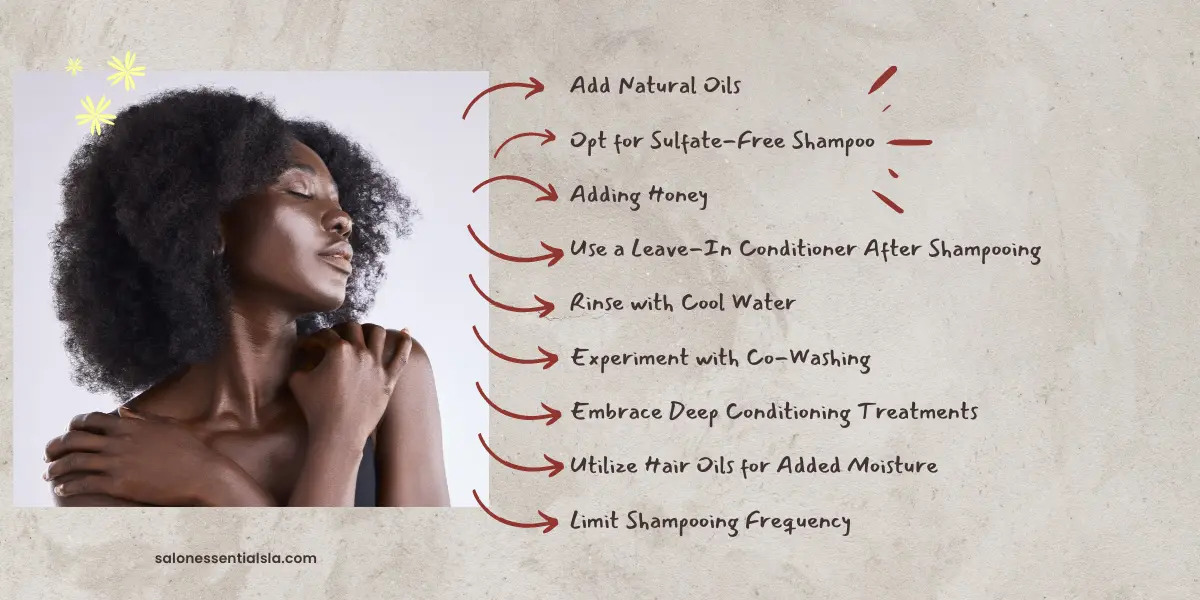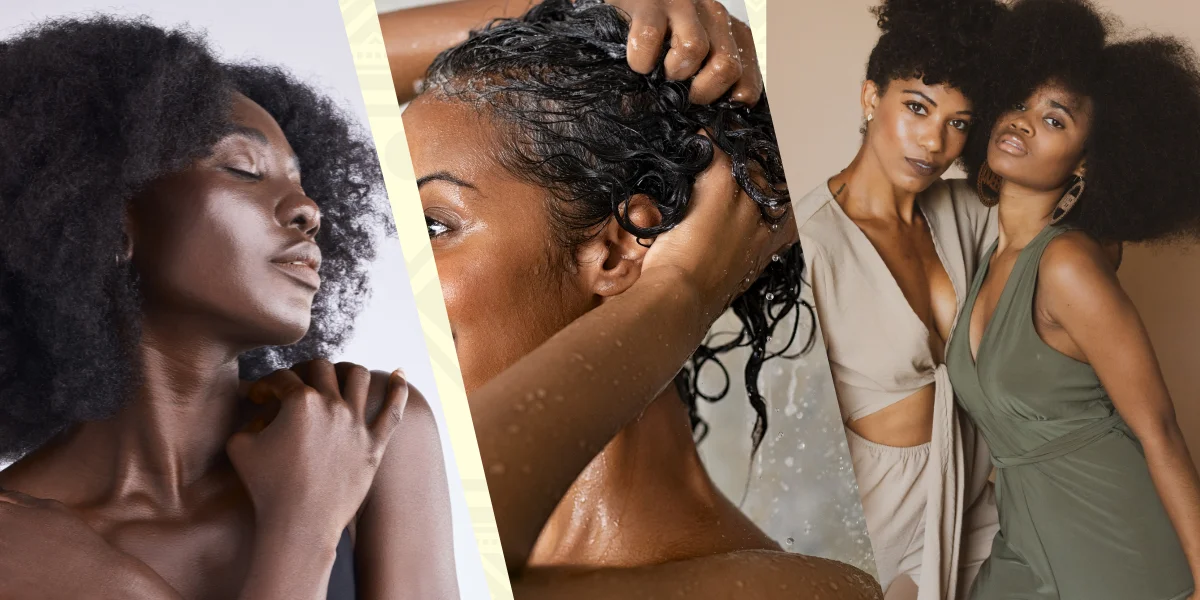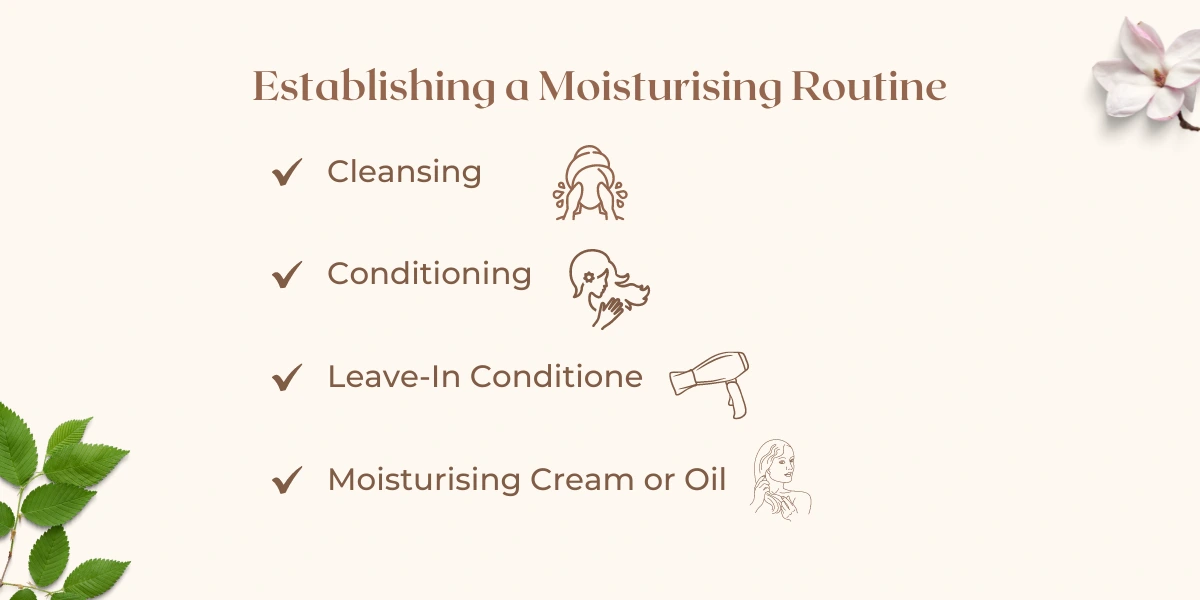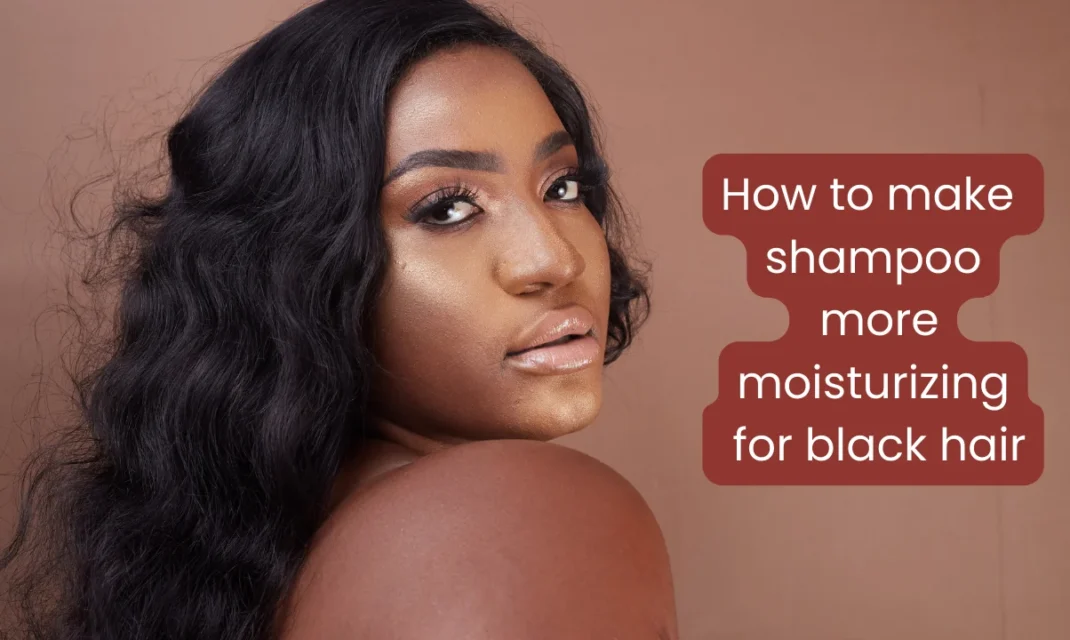Black hair often requires extra moisture and care due to its unique texture and structure. Standard shampoos can sometimes strip away natural oils, leaving hair dry and brittle. Maintaining healthy, properly moisturized natural hair is crucial for its beautiful sheen, manageability, and overall health, as it prevents breakage and maintains a healthy appearance.
Here are some tips on how to make your shampoo more moisturizing to better cater to the needs of black hair:

Add Natural Oils: Mixing natural oils like coconut, argan, or jojoba oil into shampoo enhances its moisturizing properties, providing deep hydration and preventing breakage.
Use Glycerin
Glycerin enhances shampoo’s moisture-attracting properties, especially beneficial for black hair. Use glycerin-based products or pure vegetable glycerin directly in shampoo for optimal results.
Opt for Sulfate-Free Shampoo: Sulfate-free shampoos maintain hair’s moisture balance and effectively cleanse, using gentle surfactants like cocamidopropyl betaine or sodium cocoyl iseth ionate to strip natural oils and increase dryness.
Use Aloe Vera: Aloe vera, a hydrating ingredient, can be added to shampoo for scalp soothing, hair growth promotion, and moisture retention, providing additional nourishment for scalp and hair.
Adding Honey: Honey, a natural humectant, hydrates hair, reduces scalp irritation, and adds shine. Mix a tablespoon with shampoo for added hydration.
Use a Leave-In Conditioner After Shampooing: Leave-in conditioners, enriched with shea butter, olive oil, or silk proteins, provide extra moisture and protection for black hair, making it manageable and lightweight.
Rinse with Cool Water: The temperature of the water used to rinse hair affects moisture retention, with cool water sealing the hair cuticle and providing optimal hydration benefits.
Experiment with Co-Washing: Co-washing is a hair care technique that uses a cleansing conditioner instead of shampoo, especially beneficial for black hair, to maintain moisture retention and cleanliness without stripping natural oils.
Embrace Deep Conditioning Treatments: Deep conditioning treatments, rich in ingredients like shea butter, avocado oil, or honey, can significantly improve hair moisture levels, ideally once a week for optimal results.
Utilize Hair Oils for Added Moisture: Hair oils like jojoba, argan, and coconut enhance moisture levels and nourish hair. Apply after shampooing to damp hair, focusing on dry ends, to seal in hydration.
Limit Shampooing Frequency: Reduce shampooing frequency for drier black hair by washing once a week or bi-weekly, allowing natural oils to accumulate and nourish without stripping away.
How to Moisturise Dry Natural Afro Hair?

Natural afro hair is a unique expression of identity and culture, but maintaining its health can be challenging due to dryness. Using proper techniques and products can help maintain vibrant curls.
Understanding the Needs of Afro-Hair
Recognizing the unique characteristics of afro hair is essential for effective moisturization. This hair type typically has a coiled structure, which can make it challenging for natural oils produced by the scalp to travel down the strands. Consequently, regular moisture replenishment is crucial. Understanding this aspect will help you tailor your care routine appropriately.
Choosing the Right Products
Choosing the right products is key to maintaining moisture in afro hair. Look for moisturizing shampoos, conditioners, and leave-in products that contain hydrating ingredients such as:
- Rich in vitamins A and E, shea butter deeply moisturizes and nourishes the hair.
- Known for its ability to penetrate the hair shaft, coconut oil helps reduce protein loss and adds shine to the hair.
- This natural humectant attracts moisture and provides hydration without weighing the hair down.
- Similar to the natural oils produced by our scalp, jojoba oil helps balance moisture levels and adds softness.
- A powerful humectant, glycerin draws moisture from the environment into the hair, making it an essential ingredient for combating dryness.
Establishing a Moisturising Routine

Creating a consistent moisturising routine is vital for keeping afro hair hydrated. Here are some steps to consider:
- Cleansing: Start with a gentle, sulfate-free shampoo that won’t strip your hair of its natural oils. Cleanse your scalp regularly (every 1-2 weeks) to remove buildup, but avoid overwashing, as this can lead to excessive dryness.
- Conditioning: After cleansing, apply a rich conditioner that contains the moisturizing ingredients mentioned earlier. Allow the conditioner to sit for at least 10-15 minutes, using a shower cap or heat cap for added penetration. Rinse thoroughly with cool water to seal in moisture.
- Leave-In Conditioner: Apply a leave-in conditioner to damp hair to provide an extra layer of moisture. Look for products designed specifically for natural afro hair, as they often contain ingredients that cater to its unique needs.
- Moisturising Cream or Oil: After applying the leave-in conditioner, follow up with a moisturising cream or oil. This will help lock in the hydration and add additional nourishment.
Final Thoughts
To enhance the moisturizing properties of shampoo for black hair, focus on hydrating ingredients like natural oils like coconut, olive, or argan oil. Choose sulfate-free formulas to prevent stripping of hair’s natural oils. Use ingredients like aloe vera to enhance the shampoo’s effectiveness. Choose formulations rich in hydrating ingredients and follow specific techniques to lock in moisture and nourish the hair.

